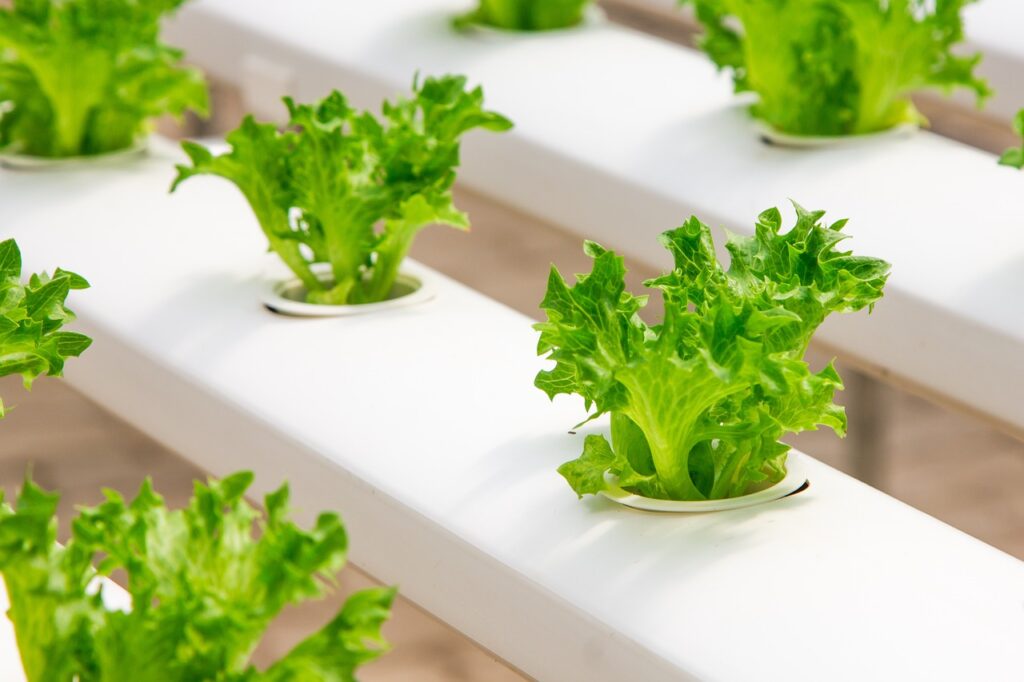Introduction
Hydroponic farming, also known as soilless farming, is a method of growing plants using nutrient-rich water instead of soil. With the growing demand for fresh produce and the increasing pressure on traditional farming practices, hydroponic farming has emerged as a sustainable and efficient alternative. In this article, we will explore the history of hydroponic farming, its advantages, and the best hydroponic farming stocks to buy in 2023.
The History of Hydroponic Farming
Hydroponic farming has a long and fascinating history that dates back to ancient civilizations. In the Hanging Gardens of Babylon, one of the Seven Wonders of the World, plants were grown using a hydroponic system. In the 17th century, Sir Francis Bacon experimented with soilless farming, and in the 1930s, hydroponic farming gained popularity in the United States. Today, hydroponic farming has evolved to become a sustainable and efficient method of growing crops.
Why Hydroponic Farming Stocks?
Hydroponic farming offers several advantages over traditional farming methods. First, hydroponic farming uses less water than traditional farming. This is because the water used in hydroponic farming is recirculated, whereas in traditional farming, water is lost through runoff and evaporation. Second, hydroponic farming requires less land than traditional farming. This is because hydroponic farming can be done vertically, with crops grown in layers. Third, hydroponic farming allows for precise control over growing conditions, such as temperature, humidity, and nutrient levels. This means that crops can be grown year-round and in any climate.

Best Hydroponic Farming Stocks to Buy in 2023
Now, let’s take a look at the best hydroponic farming stocks to buy in 2023. The hydroponic farming industry has seen significant growth in recent years, and there are several publicly traded companies that specialize in hydroponic farming. Here are some of the top hydroponic companies to invest in:
1. Hydrofarm Holdings Group, Inc. (HYFM)
Hydrofarm Holdings Group is a leading distributor and manufacturer of hydroponic equipment and supplies. The company has a diverse product portfolio, including grow lights, plant nutrients, and hydroponic systems. Hydrofarm Holdings Group has seen strong revenue growth in recent years, and the company is well-positioned to benefit from the growing demand for hydroponic farming.
2. Scotts Miracle-Gro Company (SMG)
Scotts Miracle-Gro is a well-known name in the gardening and lawn care industry. The company has also made significant investments in the hydroponic farming industry in recent years. Scotts Miracle-Gro’s subsidiary, Hawthorne Gardening Company, is a leading provider of hydroponic equipment and supplies. In addition, Scotts Miracle-Gro recently acquired Sunlight Supply, a hydroponic equipment distributor.
3. Village Farms International, Inc. (VFF)
Village Farms International is a Canada-based company that specializes in greenhouse hydroponic farming. The company has a strong track record of producing high-quality fruits and vegetables, and its products are sold in major retailers across North America. Village Farms International has also made significant investments in the cannabis industry, which has the potential to drive future growth.
How to Invest in Hydroponic Farming Stocks
If you’re interested in investing in hydroponic farming stocks, here are some steps to follow:
- Research the hydroponic farming industry and the companies that operate within it.
- Determine your investment goals
- Choose a brokerage firm that allows you to invest in the stock market.
- Open a brokerage account and fund it with money that you’re willing to invest.
- Research the hydroponic farming stocks that you’re interested in buying, including their financial performance, market trends, and industry news.
- Make your investment decision and purchase the stocks that you’ve chosen.
- Monitor your investments and make adjustments as needed.
It’s important to remember that investing in the stock market carries risks, and there is no guarantee of returns. However, with careful research and a long-term investment strategy, hydroponic farming stocks can offer potential growth opportunities.
Are Hydroponic Farms Profitable?
One question that often comes up when discussing hydroponic farming is whether it’s profitable. The answer is that it depends on various factors, such as the crops being grown, the cost of hydroponic equipment and supplies, and the market demand for the produce. However, there are several examples of hydroponic farms that have been successful.
One such example is Plenty, a California-based company that uses vertical hydroponic farming to grow produce. Plenty has raised over $400 million in funding, and its produce is sold in major retailers such as Whole Foods and Safeway. Another example is AeroFarms, a New Jersey-based company that specializes in vertical hydroponic farming. AeroFarms has received several awards for its innovative farming practices and has raised over $300 million in funding.
Hydroponic farming can offer several advantages over traditional farming, such as increased efficiency, precision, and sustainability. As the demand for fresh produce continues to grow, hydroponic farming is poised to play a significant role in meeting that demand.
Conclusion
Hydroponic farming is a sustainable and efficient method of growing crops that has been around for centuries. With the increasing demand for fresh produce and the growing pressure on traditional farming practices, hydroponic farming has emerged as a viable alternative. There are several publicly traded hydroponic farming companies that offer investment opportunities for those interested in the industry. However, investing in the stock market carries risks, and it’s important to do your research before making any investment decisions. With careful consideration and a long-term investment strategy, hydroponic farming stocks can offer potential growth opportunities.